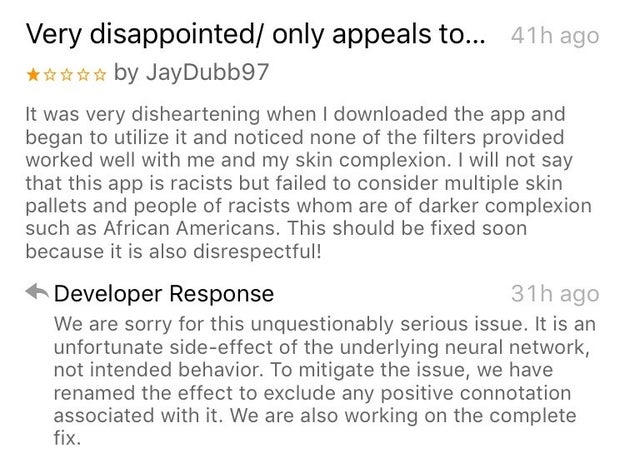
Saul Loeb / AFP / Getty Images
Palantir Technologies, the Silicon Valley data company co-founded by billionaire investor Peter Thiel, has developed an almost mythical reputation for its work building tools for the U.S. intelligence community. But Palantir has had a far rockier relationship with the nation’s top spy agencies than its image would let on, BuzzFeed News has learned.
As of summer 2015, the Central Intelligence Agency, a signature client, was “recalcitrant” and didn’t “like us,” while Palantir’s relationship with the National Security Agency had ended, Palantir CEO Alex Karp told staff in an internal video that was obtained by BuzzFeed News. The private remarks, made during a staff meeting, are at odds with a carefully crafted public image that has helped Palantir secure a $20 billion valuation and win business from a long list of corporations, nonprofits, and governments around the world.
“As many of you know, the SSDA’s recalcitrant,” Karp, using a Palantir codename for the CIA, said in the August 2015 meeting. “And we’ve walked away, or they walked away from us, at the NSA. Either way, I’m happy about that.”
The CIA, he said, “may not like us. Well, when the whole world is using Palantir they can still not like us. They’ll have no choice.” Suggesting that the Federal Bureau of Investigation had also had friction with Palantir, he continued, “That’s de facto how we got the FBI, and every other recalcitrant place.”
Palantir’s data-mining software has become ingrained at the CIA, according to people familiar with the company and the agency. But the relationship has also been marked by tension and even hostility, three people with direct knowledge of the matter said. One source of the tension, these people said, has been Palantir’s failure to quash persistent publicity about its CIA business and about its supposed role in helping to track down Osama bin Laden.
Palantir was never so critical to the NSA, despite media reports over the years linking the two. Palantir performed some pilot work for the NSA, but this did not turn into a full-fledged contract, according to two people with knowledge of the matter. The NSA has plenty of its own computer talent, and Palantir’s particular expertise fit awkwardly with the agency’s mission of intercepting communications and electronic signals, the people said.
A Palantir spokesperson said the company couldn't comment on its relationships with intelligence agencies. Spokespeople for the CIA and the NSA declined to comment.
View Video ›
video-cdn.buzzfeed.com
Palantir, founded in 2004, has authentic ties to the intelligence community. It got an early $2 million investment from the CIA’s venture capital arm, called In-Q-Tel, which helped the young startup develop data-crunching software that was well suited to the CIA’s brand of spycraft. Later, Palantir won significant business from the FBI and the Defense Intelligence Agency, as well as the Department of Homeland Security, the military’s Special Operations Command, and other federal agencies, according to company documents. (Don’t ask what “SSDA” stands for; even many Palantir insiders have forgotten the origin of the company’s nickname for the CIA.)
Palantir has expanded into corporate work — Karp said in the video that it had a total of 400 “deployments,” or jobs around the world — but it still relies on the federal government for a significant portion of its revenue. And it now has a significant connection to the White House. Thiel, its co-founder and chairman, prominently supported President Donald Trump’s campaign and became an adviser to the President after the election. Karp, however, supported Hillary Clinton for president and said in the 2015 staff meeting that “it would be hard to make up someone I find less appealing” than Trump.
LINK: Video Shows Palantir CEO Ridiculing Trump And Slamming His Immigration Rhetoric
In a June 2016 lawsuit that it filed against the Army in an effort to be considered for a lucrative contract, Palantir said its government clients had “overwhelmingly praised” its software.
But in the August 2015 meeting, Karp described the relationship with the federal government as colder, while discussing Palantir’s business more broadly. “I think France may be the country where they just like us — as opposed to the U.S. government, where they tolerate us because nothing else works,” he said.
Palantir’s relationship with the NSA, for one, has been limited, though it seems to loom large in the public imagination. A February report in The Intercept said Palantir had worked in the past to “facilitate, augment, and accelerate” an NSA tool called XKeyscore. In early 2015, TechCrunch reported that potential investors were circulating a document from two years earlier that listed the NSA as using Palantir software. TechCrunch didn’t say whether that information originated from Palantir or from an outside broker — or whether it was still true.
The Palantir software, built with the CIA in mind, works better for managing HUMINT, or intelligence from human sources, than SIGINT, or intelligence from signals, which is the NSA’s bread and butter, people familiar with it say. Even Palantir insiders say it’s not surprising that the NSA relationship never took off.
If you have information or tips, you can contact this reporter over an encrypted chat service such as Signal or WhatsApp, at 310-617-1302. You can also send an encrypted email to will.alden@buzzfeed.com, using the PGP key found here.
The report that Palantir had a role in the bin Laden mission, though unconfirmed, has been repeated in numerous articles, sometimes as a “rumor,” and always in nonspecific terms. The truth of the matter is a government secret and could not be determined.
But the very existence of the report — with the implication that Palantir provided a crucial assist — has rankled CIA insiders, who strenuously avoid being recognized publicly for their work and are aware that the bin Laden mission included a large number of participants, the three people familiar with the matter said.
Moreover, such a report “would probably be a true statement for almost any contracting company,” Glenn Carle, a former CIA officer who worked on terrorism issues, told BuzzFeed News. “Companies will have some finger in the pie, whether it’s providing analysts or technical capability. They all played a part.”

People gather in Times Square shortly after the announcement that Osama bin Laden was dead.
Timothy A. Clary / AFP / Getty Images
Though it usually carries the caveat that Palantir would not comment on it, the rumor has appeared in several stories — in The New York Times, Fortune, and Forbes, for example — that featured on-the-record interviews with Karp.
After the publication of a 2013 Forbes article, the CIA grew so frustrated by the publicity about Palantir’s business with the agency that it considered canceling its Palantir contract, according to a person with direct knowledge of that discussion. The agency decided, however, that it would be too difficult to replace the work Palantir was doing.
Palantir’s reputation for helping take down the Al Qaeda founder stems from a single paragraph in a 2012 book, “The Finish: The Killing of Osama Bin Laden,” by Mark Bowden. The book cited Palantir as an example of a company that had “elegantly accomplished” what a government data-wrangling project had sought to do. It said Palantir’s software “would help turn America’s special forces into deadly effective hunters,” but it did not explicitly say how the software was used in the bin Laden raid, or even whether it was used in that mission at all.
Not long after, in early 2013, a Wall Street Journal columnist quoted from the book and added that Palantir’s technology “is known to have been key in locating bin Laden” — and Palantir posted a PDF of the entire column on its website.
Months later, the Forbes article opened with: “Since rumors began to spread that a startup called Palantir helped to kill Osama bin Laden, Alex Karp hasn&039;t had much time to himself.” (The Forbes story got a link on Palantir.com.) Since then, journalists have written that “Palantir’s software has been credited with helping intelligence agencies find and kill Osama bin Laden,” that Palantir “may or may not have helped track down Osama bin Laden,” and that Palantir is “best known for helping the U.S. government track down” bin Laden.
This reputation wasn’t lost on Palantir’s customers. The subject of bin Laden came up during an “incredibly positive” meeting in March 2015 with the health insurer Molina Healthcare, as the two sides discussed project ideas, according to meeting notes compiled by a Palantir employee and shared internally. The line about bin Laden appeared in a list of “favorite quotes.”
“Find Osama Bin Laden,” the insurer’s CEO, Dr. Mario Molina, was quoted as saying, according to the notes. “Palantir didn’t do that by going out to the Middle East and surveying people asking ‘Where’s Osama?”
In an interview with BuzzFeed News, Dr. Molina said he didn&039;t recall saying that. He sought Palantir&039;s data-mining services on the advice of a friend, whose son had gone to work there, and Palantir has since done “really good work for us,” Dr. Molina said.
“First of all, we didn’t go to Palantir because they found Osama bin Laden,” he said. “Number two, no one at Palantir has ever told me they found Osama bin Laden.”
Quelle: <a href="Palantir’s Relationship With America’s Spies Has Been Worse Than You’d Think“>BuzzFeed
















